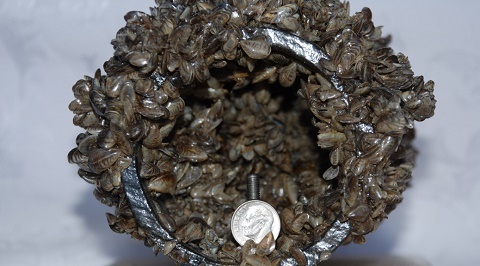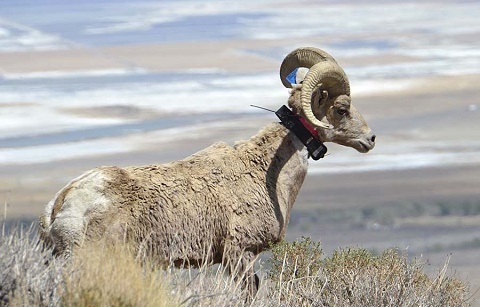Fish Report for 9-1-2016
Combat Spread of Invasive Mussels

by California Department of Fish & Wildlife
9-1-2016
Website
California agencies fighting the spread of invasive quagga and zebra mussels remind boaters to please remain vigilant over the three-day Labor Day weekend.
Quagga and zebra mussels are invasive freshwater mussels native to Eurasia. They multiply quickly, encrust watercraft and infrastructure, alter water quality and the aquatic food web, and ultimately impact native and sport fish communities. These mussels spread from one body of water to another by attaching to watercraft, equipment and nearly anything that has been in an infested waterbody.
Microscopic juveniles, invisible to the naked eye, are spread from infested waterbodies in water entrapped in boat engines, bilges, live-wells and buckets. Quagga mussels have infested 32 waterbodies in Southern California and zebra mussels have infested San Justo Reservoir in San Benito County.
To prevent the spread of these mussels and other aquatic invasive species, people launching vessels at any body of water are subject to watercraft inspections and are strongly encouraged to clean, drain and dry their motorized and non-motorized boats, including personal watercraft, and any equipment that comes into contact with the water before and after recreating.
To ensure watercraft are clean, drained and dry, many local agencies conduct boat inspections. The CDFW website provides a list of these inspection programs (wildlife.ca.gov/mussels), along with additional information about the invasive mussels and what people can do to help prevent their spread in California. Prior to traveling, boaters should contact destination waterbodies directly to check for restrictions and requirements.
Take the following steps both before traveling to and before leaving a waterbody to prevent spreading invasive mussels, improve your inspection experience and safeguard California waterways:
- CLEAN — inspect exposed surfaces and remove all plants and organisms,
- DRAIN — all water, including water contained in lower outboard units, live-wells and bait buckets, and
- DRY — allow the watercraft to thoroughly dry between launches. Watercraft should be kept dry for at least five days in warm weather and up to 30 days in cool weather.
CDFW has developed a brief video demonstrating the ease of implementing the clean, drain, and dry prevention method, which can be viewed at youtube.com/watch?v=GaeAIPLoK-k. In addition, a detailed guide to cleaning vessels is available on the CDFW Invasive Species Program’s quagga/zebra mussel webpage at wildlife.ca.gov/mussels.
Travelers are also advised to be prepared for inspections at California Department of Food and Agriculture (CDFA) Border Protection Stations. Over the past nine years, more than one million watercraft entering California have been inspected at the Border Protection Stations. Inspections, which can also be conducted by CDFW and California State Parks, include a check of boats and personal watercraft, as well as trailers and all onboard items. Contaminated vessels and equipment are subject to decontamination, rejection, quarantine or impoundment.
Quagga and zebra mussels can attach to and damage virtually any submerged surface. They can:
- Ruin a boat engine by blocking the cooling system and causing it to overheat
- Jam a boat’s steering equipment, putting occupants and others at risk
- Require frequent scraping and repainting of boat hulls
- Colonize all underwater substrates such as boat ramps, docks, lines and other underwater surfaces, causing them to require constant cleaning
- Impose large expenses to owners
A multi-agency effort that includes CDFW, California State Parks-Department of Boating and Waterways, CDFA and the California Department of Water Resources has been leading an outreach campaign to alert the public to the quagga and zebra mussel threats. A toll-free hotline, 1 (866) 440-9530, is available for those seeking information on quagga or zebra mussels.
< Previous Report Next Report >
< Previous Report Next Report >
More Reports

8-31-2016
California Department of Fish and Wildlife (CDFW) officers are looking for any information the public may have regarding two unsolved...... Read More

8-29-2016
08/29/16 -- The U.S. Fish and Wildlife Service (USFWS) and California Department of Fish and Wildlife (CDFW) are looking for...... Read More

Website Hosting and Design provided by TECK.net